#Also they're only playing military and war themed movies
Explore tagged Tumblr posts
Text
So I'm at a wings army and it's so weird the whole place is like, 40s to 60s us military themed, and they're playing 70s and 80s music, gurl pick an aesthetic
#If they wanted full aesthetic the men's room would have no dividers in the urinals and no doors OK the toilet stalls#Also why do you need a theme for a burger and wings place#Nothing on the menu is old school#OK maybe the burgers but that's kinda it#They don't even have cute names#I'm so tempted to ask them to play boogie woogie bugle boy#Also they're only playing military and war themed movies#I will say#I do love the art style on pre 70s advertisements and propaganda#That stylised realism is a vibe
1 note
·
View note
Text
Review: Sands of Iwo Jima (1949)
Sands of Iwo Jima (1949)
Approved by the Production Code Administration of the Motion Picture Producers & Distributors of America
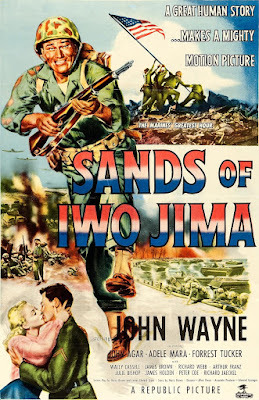
<Originally posted at https://kevinsreviewcatalogue.blogspot.com/2024/12/review-sands-of-iwo-jima-1949.html>
Score: 4 out of 5
In the canon of Movies That You Watch With Your Dad, Sands of Iwo Jima is one of the big ones, referenced as such by everything from King of the Hill to NCIS. That's how I wound up watching it, the first John Wayne movie I've reviewed (though not the first one I've seen; I watched Rio Bravo a long time ago). Last weekend, I went over to my father and his girlfriend's house for lunch, hooked up his old combination VCR/DVD player to their television so they could watch his old movies (it needed an RCA-to-HDMI adapter), used his VHS tape of this film (the colorized version from the '80s, specifically) to see if it worked, and ultimately sat down and watched it with them. It's enjoyed this reputation for a very long time, too, as many of the fathers who shared this movie with their sons first saw it themselves with their own fathers, who were probably around when it first premiered 75 years ago and may have seen it in theaters with their own fathers. And given the themes of this movie, revolving as they do around an authority figure whose stern discipline of the men under his command is ultimately vindicated, I can definitely see the appeal this movie has for dads, even those who aren't veterans, though its unvarnished love for the United States military (the Marine Corps especially) has also undoubtedly boosted its reputation there. What's more, while it's very much a movie of its time, it's also a very well-made war movie with two standout battle sequences and a lot of interesting character moments in between that help set up the drama in those battles, anchored by a great performance by the legendary Wayne in the kind of role that defined his image and got him his first Oscar nomination. It's still a classic, and one I can see enduring for another 75 years among both fathers and the US military.
John Wayne is Marine Sergeant John Stryker, a man with a name out of an action movie, video game, or comic book from the '80s or '90s and a backstory to match (or at least about as much as one could get away with under the Hays Code). He's a harsh commander of the squad he leads, and also a man with personal demons, an alcoholic whose wife left him and took their son and who seems to be taking out some of his issues on his men. Needless to say, his fellow Marines hate him and see him as a tyrant of a squad leader, feelings that Stryker reciprocates as he comes to see the Marines he's in charge of as a green, undisciplined rabble fresh out of boot camp who are dangerously unprepared for battle. It's not much of a surprise to say that, when these Marines face their first actual combat in the Battle of Tarawa, they very quickly realize that Stryker wasn't just a cruel, heartless bastard, but was actually trying to prepare them for the harsh reality of warfare. At Tarawa, the battle-hardened Stryker comes off as the only man in the squad who was actually ready for combat, while the men under his command make constant errors in judgment that get some of them killed or badly wounded, forcing them to shape up after the battle while on leave in Honolulu before they're shipped back into the meat grinder of the Pacific War, specifically to the famed battle in the title.
For all his public image and reputation as the paragon of mid-century rugged, stoic, conservative masculinity, from both fans of his who celebrate that image and people who are deeply critical of what it stood for then and now (and a reputation that he himself cultivated in his lifetime), Wayne's actual performances had depths beyond that, and this film, despite playing a key role in building that image, was no exception. He may not have had the most range, but he knew where his limits and strengths were as an actor, which allowed him to make the most of his image and occasionally play around with it. Here, Stryker comes across as a man who, the more we learn about him, seems like he threw himself into soldiering as a way out of a broken personal life, coming to see the men he commands on the battlefield as his surrogate family after his wife left him. He is ultimately the good guy trying to do right by his fellow Marines, as evidenced at Tarawa when they have to learn the lessons he tried to teach them the hard way, but he is a flawed leader who, before Tarawa, did little to earn the respect of those men, his alcoholism in particular having gotten him demoted recently and causing him to wind up blackout drunk while on leave in New Zealand, an affair that causes his men to see him as a hypocrite. In this, the comparisons between Stryker as a "father to his men" and a literal dad, especially the idealized patriarchs of the postwar era, become unavoidable. Stryker may know best, but he has to soften up and come to terms with some of his own vulnerabilities if he wants to earn the trust of his men, and not risk another situation like the one at Tarawa where he saw that everything he tried to teach them went in one ear and out the other. He's a hardass with a heart of gold, a more idealized version of Gunnery Sergeant Hartman in Full Metal Jacket whose "tough love" approach does in fact make his men into better Marines in the end but could probably stand to tone it down a bit, if for no other reason than to more effectively teach his men.
As an action film, it's clearly a movie of its time. A ton of unironic postwar 'Merica drips from nearly every frame, which can feel hokey watching it today but is still admittedly enjoyable in its own way, with me being of the opinion that the best propaganda is the kind that is proud and unashamed of the things it is standing for. A message delivered with conviction, as this film does, is a lot more persuasive than that same message delivered halfheartedly. Something that feels a bit more dated nowadays, though, comes in the effects department with the use of archival World War II footage for the battle scenes, a decision that on one hand guaranteed realism but on the other also let you know that Republic Pictures, even on one of its bigger-budget productions, had its roots in a collection of smaller indie studios that are often referred to by the self-explanatory name of "Poverty Row". That said, while the real-life war footage wasn't quite seamlessly woven into the film, it did fit remarkably well, and the action they did shoot for this was very well-done. Tarawa felt like a mess of a battle where the fresh recruits were constantly screwing up and had to be bailed out by an increasingly frustrated Stryker, Iwo Jima by contrast made them feel like a well-oiled machine who had learned how to function as both a unit and as individual Marines, and both scenes did a great job of establishing the lay of the land for the battles and the Japanese soldiers as a credible threat to the Marines.
The supporting cast were all outshined by Wayne, obviously, but they too made for a likable or at least interesting bunch, a group of men who all bring their own baggage to the table and have to overcome it if they want to become better Marines, my favorites probably being John Agar as the arrogant rich kid Pete Conway and Forrest Tucker as the tough guy Al Thomas who has old beef with Stryker. The biggest weakness was probably the romantic subplot with Conway meeting and marrying a woman named Allison in New Zealand. It felt like an afterthought, there simply to put a romantic image on the poster and broaden the film's audience, between the fact that Adele Mara didn't even bother with the accent and the manner in which she almost completely vanishes from the film after that scene. Given Stryker's own history with his wife, some more development there could've helped to flesh out both Conway and Stryker as characters, giving Conway something to fight for and reason to shape up while Stryker hopes that Conway doesn't make the same mistakes in his relationship that he did with his own. Instead, not only do we barely see Allison again, the subject of Conway now being a married man is only rarely broached after the Marines ship out from New Zealand.
The Bottom Line
While it's undoubtedly a movie of its time, Sands of Iwo Jima is otherwise a rock-solid war movie anchored by a Hollywood legend in his prime delivering one of his most iconic performances. It's worth checking out whether you're into history, the military, or action movies, if for nothing else than to see an exemplar of the kind of movie that generations of later American war films would find themselves responding to.
#sands of iwo jima#1949#1949 movies#action#action movies#war movies#world war ii#john wayne#john agar#forrest tucker#adele mara
1 note
·
View note
Text
The Boys Season 1 Review and Comparison
This was so cathartic.
In an age where we’re inundated with superhero media on all fronts with their bright colors, cheery jokes and positive outlooks, it’s easy to slowly become sick of it, feel the “superhero fatigue” as it were. Where Marvel ruins some stories with far too many jokes (looking at you Thor: Ragnarok) and DC is far too dreary and serious for its own good with a lack of levity, where can one turn to for a GOOD happy medium?
Well, in comes Seth Rogan and Evan Gold, the brilliant minds behind the amazing adaptation of Preacher with yet another brutal and slightly more cynical series. The Boys absolutely stuns not only by being a genuinely compelling series, but also by being one of the few adaptations that improves on the original medium in a few aspects.
Story
The story centers around Hughie Campbell and the titular Boys as they work to expose the horrific deeds of The Seven, a collective of the world's greatest superheroes, and the company that sponsors them, Vought American.
In this world, superheroes are everywhere. They're on breakfast cereals, TV shows, movies, pretty much every piece of media and entertainment imaginable while also protecting America from crime. Sounds familiar, huh? The kicker here is that, much like every asshole celebrity that lets the fame and fortune go to their heads, these heroes are massive cunts. They take performance enhancing drugs, routinely cause accidents that hurt or kill people, sexually harass people left and right and just lie to their adoring public like they’re children.
Unlike the books, however, The Boys team isn’t the well oiled machine that’s been taking down and blackmailing superheroes for years and the first four episodes are spent introducing the different team members.This is likely due to wanting to give people time to care about them individually and the limited number of episodes in the season. This definitely works in also retooling the characters themselves for TV since they may not have seventy-two issues of character development ahead of them
For the most part, the show follows the initial story beats of the comics with a few select differences before splintering off in an entirely new direction. Hughie’s girlfriend still gets blown apart by A-Train, he denies Vought America’s hush money which draws the attention of Billy Butcher and Starlight joins the Seven after the “death” of the hero Lamplighter.
This also means that there's less time to focus on smaller plotlines and teams that are referenced to in passing dialogue like the Teenage Kix, a pastiche on the Teen Titans, or Payback, the number two group of superheroes to The Seven. While seeing the team take these guys down on the small screen would have been fun, I like the idea of keeping the plot focused on just the core group of antagonists. This way, we don’t have to slog through three or four seasons of small fry and get the big bads in the last few.
After the first half, fans of the comic may start to feel a little bit of the familiar, but then things start to take a drastic turn when Billy's pride and the rest of the teams sloppiness gets them all burned and branded wanted criminals. This never happens in the books because The Boys are funded and protected by the CIA, but here they’re just another group of concerned citizens that are completely in over their heads, adding to the tension and keeping everyone guessing as to what will happen for the rest of the season and in Season 2.
Themes
The original series was written during the latter years of the Bush Administration. Tensions were high and America was still embroiled in the Iraq War. The president was a simpering fool and companies were fucking people over left and right in the name of patriotism. Reality TV and the awful personalities on our screens were on nearly every channel and all of this only fueled the anger that is Garth Ennis’ pen and Darick Robertson’s pencils. It was a product of its time and it was perfect.
We’re now in the Information Age where superheroes and social media are the only things that matter in everyone’s mind, where women’s empowerment is stronger than ever and our leaders speak bombastically with shit eating grins full of lies. Rogen and Goldberg have kept the series modern and take everything to task.
Media. Marvel and DC are everywhere nowadays with some indie companies managing to scrape up their own part of the pie. The Boys makes fun of the seemingly endless cycle of sequels and the goody-two-shoes images of America’s favorite heroes. Everything is carefully managed and curated by a media team, similar to how Disney micromanages even the smallest details of their properties to make everything so sickeningly squeaky clean.
Not only do the heroes stop crime, but they star in their own movies about themselves as well, some have sponsorships for shoes and have to compete with each other for everything. Almost everything is done for the cameras, even intimate moments whenever Vought can find a way to make it work. The heroes are never too far from the spotlight even when they want to be and oftentimes their acts can go viral without them knowing.
Sexual Assault. In the comics, Starlight is sexually assaulted by Homelander, Black Noir and A-Train in a gross scene to establish that there’s nothing good in that world. It was good for its time in its own dark way, but today there are absolutely consequences to such things as there should have been back then. In the show, Starlight is assaulted by The Deep, her childhood crush, alone.
It’s dark and makes use of the imbalance of power as The Deep threatens to have her kicked off of the team. Soon after, Starlight comes forward with what happens to her, not allowing herself to let what happened stand and unlike in the books, The Deep gets his comeuppance. Though this also unfortunately leading to him getting assaulted as well. It’s powerful and allows for Starlight to move what could have been an image of weakness, though Vought uses this to their advantage as well, painting her a feminist icon. Best for business right?
Politics. While not everything has to be an allegory for Trump, it’s hard to say that Homelander isn’t just that. He’s what the president thinks he is, a strong, blonde haired man that the entire country loves. Homelander has the people eating out of the palm of his hands and he’s only feeding them shit. He hates the common man and will just as easily let many die if it can somehow serve his interests. He’s not above a little sexual harassment himself and he is just an evil bastard.
There’s also a subplot of military application of superheroes that I feel mirrors the discussion on the use of drones in war. Drones are absolutely deadly and have caused the deaths of hundreds, even innocents when things have gone really wrong. Even President Obama was criticized for how reckless and dangerous their use could be. The world could only imagine the hell that would rain down if superheroes were allowed to duke it out over national security.
Characters
The Boys as a comic series was an unrepentantly cynical take on the superhero genre in an established universe of heroes. The creator, Garth Ennis, didn’t grow up with many superheroes and actually felt disrespected by a few of them, like Captain America. He brought on the amazing Darick Robertson and other artists to realize this horrid world of drugs, hardcore sex and brutal violence. Many of the stories are fun and hilarious, but with the unfortunate feeling of a lot of them feeling one note due to the one dimensional nature of a lot of the “heroes” and the ever escalating level of black humor to the point of being cartoonish.
Our main character cast is absolutely fantastic. Jack Quiad’s Hughie is much like his comic counterpart, aside from being like six feet tall and not Scottish. He’s surprisingly smart with a lot of awkwardness about him. He has a good heart and doesn’t see ALL superheroes as being evil, but does have a slight sense of justice that wants to see The Seven and Vought taken down.
Karl Urban’s Butcher was the absolute perfect casting choice. He’s got that wry British wit, the fury to capture Butcher’s rage against supes and can play a manipulator like nobody's business. His character arc is one of the few regressions that I can actually appreciate for how it's done, especially as things become more fucked because of him and how he chooses to blame everyone else.
Everyone else is a slight bit of an improvement over the comics versions. The Frenchman, played by Tomer Capon, is similar to his comics counterpart, but we’re given reason to care about him and The Female. In the comics, Frenchie and the Female knew each other prior, but I don’t think it’s ever revealed how they met or became close. In the show Frenchie frees The Female, played by Karen Fukuhara, from thugs that had been keeping her prisoner and he slowly gains her trust over the course of the next few episodes after her introduction. We see their friendship grow, learn a little bit of her backstory and get a better understanding of what she wants versus just following Frenchie around and being terrifyingly adorable.
Annie January aka Starlight, played by Erin Moriarty, is probably the second best change in character in the series. She starts out as a bright eyed, bushy tailed hero looking to do good, but after being sexually assaulted on her first day in The Seven, decides that it will never happen again. In the comics, Annie stays around in The Seven and takes the abuse for a little while before speaking out and fighting back against the rest of them. What makes things even better, not only does she challenge her uber Christian beliefs during an event sponsored by Vought, but she does so while also getting Vought to force her abuser into giving a public apology at the mere thought of her causing their stock prices to crash.
Consequently, Mother’s Milk, portrayed by Laz Alonso, one of the most layered characters in the comics isn’t made better, but the more ridiculous aspects of is character have been toned down. We don’t hear of his disabled mother and his addiction to her breast milk that fuels his own superpowers, nor is his wife a crack addict that makes pornos with their daughter. He’s simply a reliable member of the team that loves his wife and will give Butcher the truth when he’s acting like an asshole.
The series actually brings a lot of grey to most of these characters. A-Train never once shows remorse for his actions in the books, but in the show he's painted as kind of sympathetic, while still being seen as a monster for what he does and the reasons behind them. The Deep could go either way after his actions with a redemption arc or a full turn to villain, but is shown to be knowingly aware of how little regard there is for him. He calls himself a "diversity hire" and acknowledges his own ineptitude, but he's still an absolutely terrible person.
Queen Maeve may be one of my favorite changes that manages to be even more sympathetic than her already pretty great comic counterpart. She, much like Starlight, did want to change the world, but she let the apathy and jaded nature of the job take her over. She's an alcoholic that sees a bit of herself in Starlight. The change comes in how she reacts to what I think might be Homelander's most heinous act in the show. She shows far more remorse and guilt over what happens than she does in the comic, showing us a side of her makes you want to root for her and to see her get better.
The best character… dear Lord, is Homelander, played by Anthony Starr. Homelander is a bastard. The worst thing imaginable because of his sheer strength and power. He’s a sociopath with all of the powers of Superman and none of the goodness. In the comics he’s simply just another asshole.
He’s the most powerful of the Seven and absolutely revels in the hedonistic lifestyle that he’s accustomed to while also hating being under the rule of Vought. In the show, he’s shown as being supportive to Vought, especially it’s current Senior VP of Hero Management, Madelyn Stillwell. He has something of a mommy fetish as shown with his interactions with her and later in the series actually expresses emotions over learning of his own tragedies, but instead of trying to change for the better, he doubles down on his hatred and anger to become an even bigger monster than before.
In the comic he just wants all of the superheroes to conquer the world, but here, he just wants to hurt everyone who hurts him. He plays games like a child, threatening and revealing secrets to toy with people before absolutely breaking them. He's horrible in a very personal way and his sneering smile only makes him so much more hateable. He knows there isn't a damn thing you can do to stop him and he revels in that fact, I love it.
Pacing and Direction
Coming in at an hour for each episode, the first two to three can feel a bit slow. Getting all of the story elements to sit just right can take time, especially as new things are introduced every few minutes. This slow burn approach easily helps to build the tension before things get really crazy by episode four. By that point, the story is unfolding at a perfect rhythm, the team is mostly together, they’ve made their plans of action and it’s all so smooth.
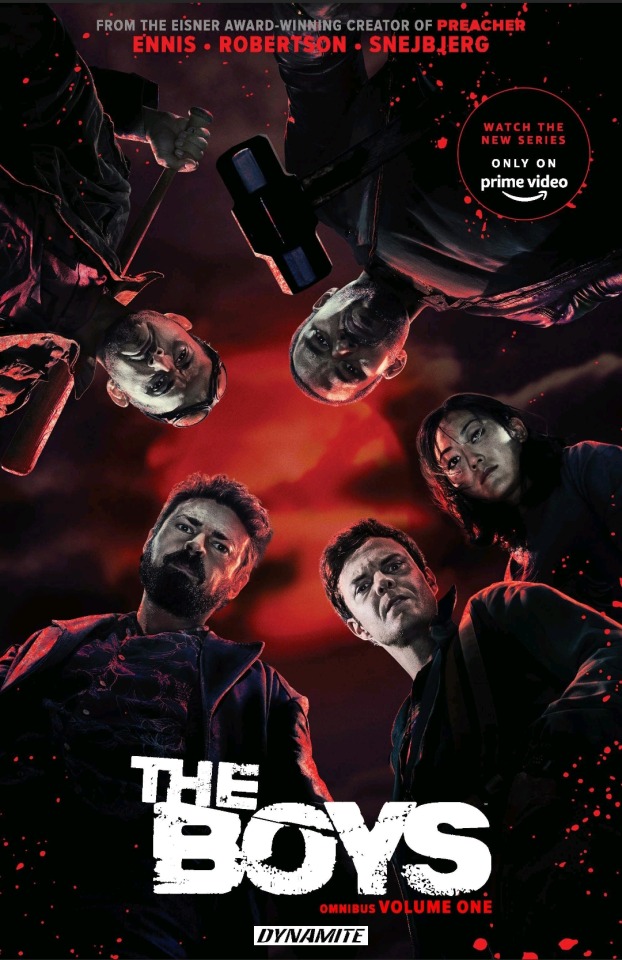
Thankfully each episode is directed by different people to avoid each feeling so similar. The common humor and tone is kept the same, but some episodes are very hopeful almost before being met with one that absolutely makes you hate certain characters and the actions that they take. In particular, the episode where Hughie and Butcher visit a group therapy session and Butcher flies off into a rage about the weakness of the attendees as they basically lick the balls of the heroes that have maimed them was amazing. The director pulls so much emotion out of that scene and continues on as the episode moves along in a far more dramatic fashion than some of the others.
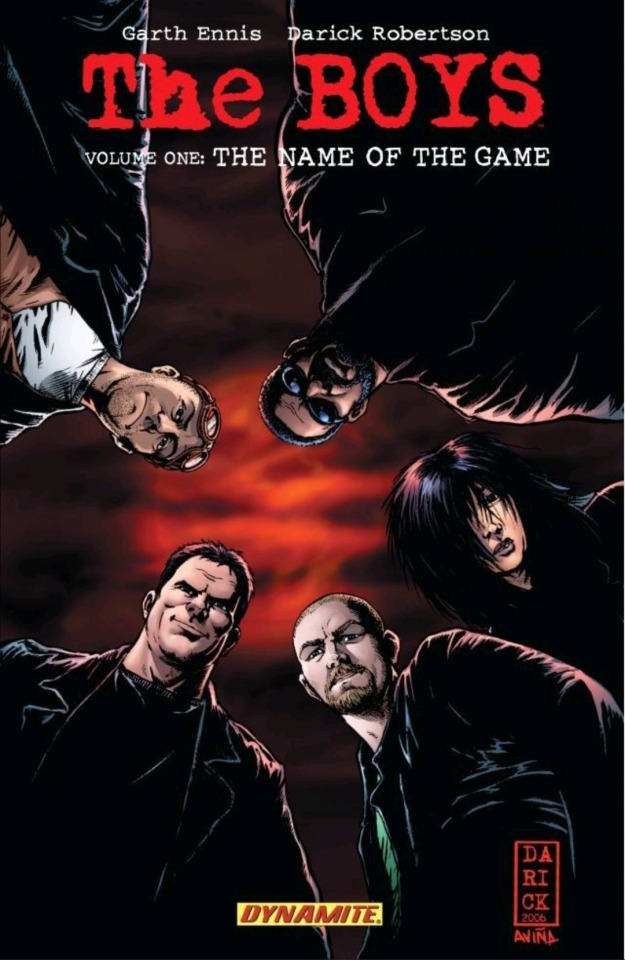
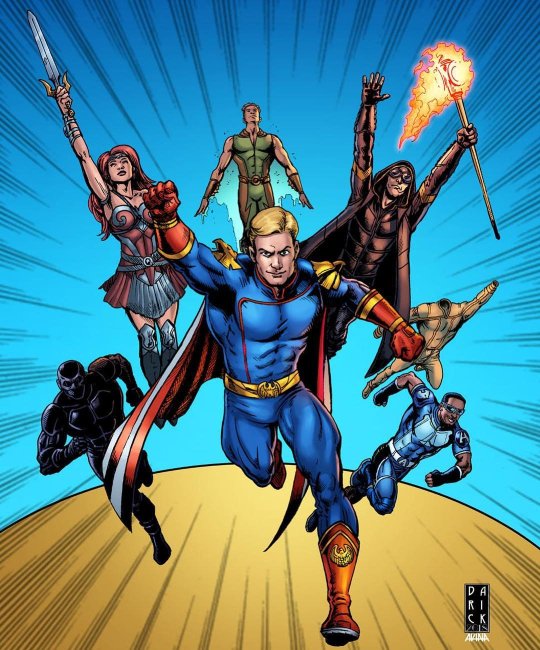
Some others lean heavier on the debauchery such as the episode where Hughie and Butcher venture into a superhero sex club and watch as these guys do some pretty amazing feats with their abilities in some really gross ways. There’s a good balance of levity and drama that makes neither feel too overwhelming.
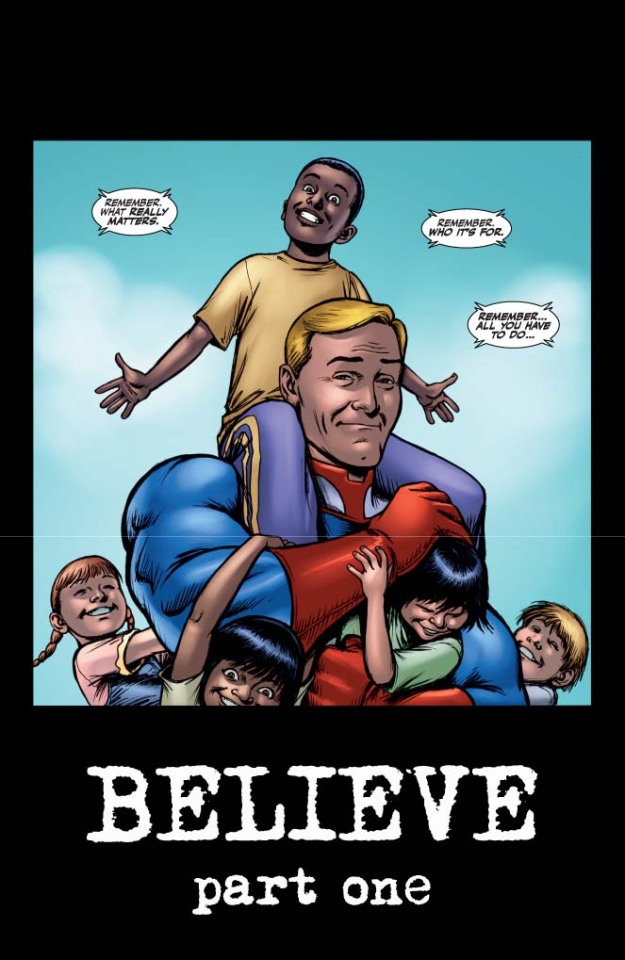
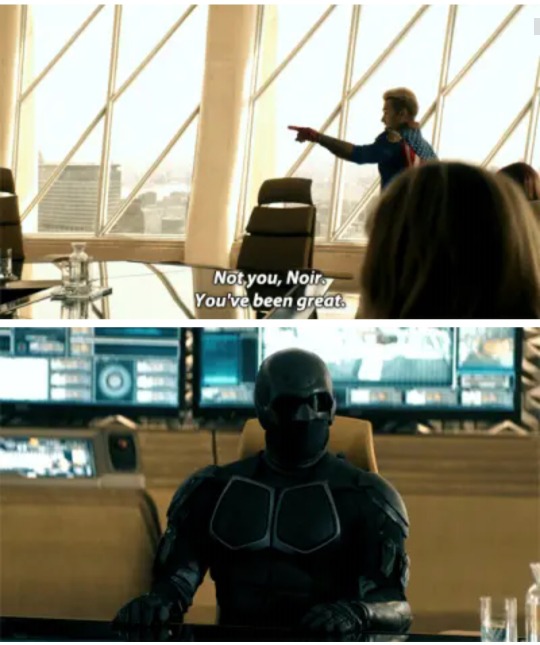
Overall
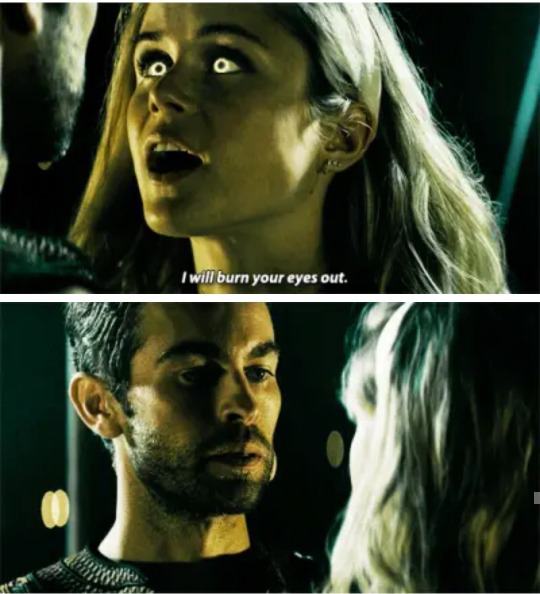
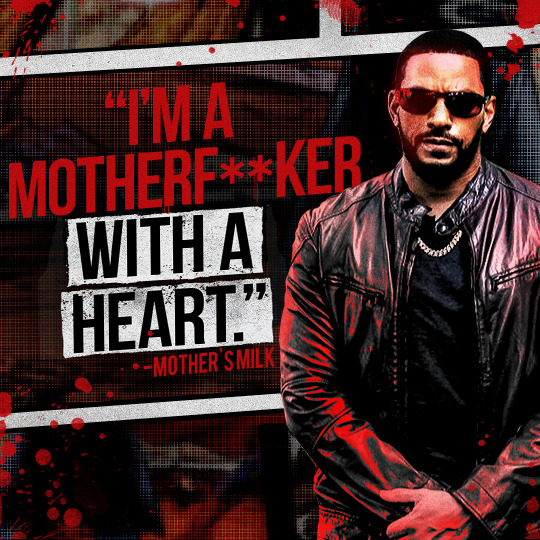
With a great cast, impeccable acting and an unpredictability that I actually enjoyed, The Boys absolutely blew me away. I was wholly prepared to rip it apart if I felt like it didn’t do the story justice, but Rogen and Goldberg are fans and knew what we all wanted. It’s unabashedly a comic book show, but still has enough to it that people who have never heard of the series will be floored by how much they can find to enjoy.
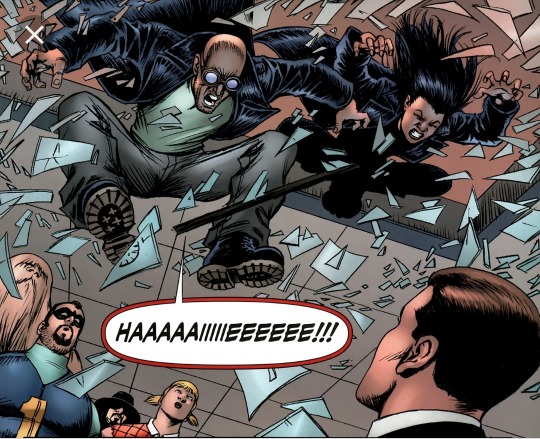
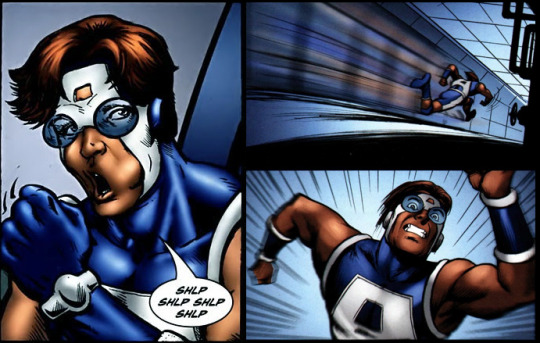
It’s for the nihilistic and jaded comic book fan. It’s for the casual watcher who’s gotten enough of Marvel’s colorful displays of happiness and it’s absolutely for the happy person who just wants to have some fun with what they watch.
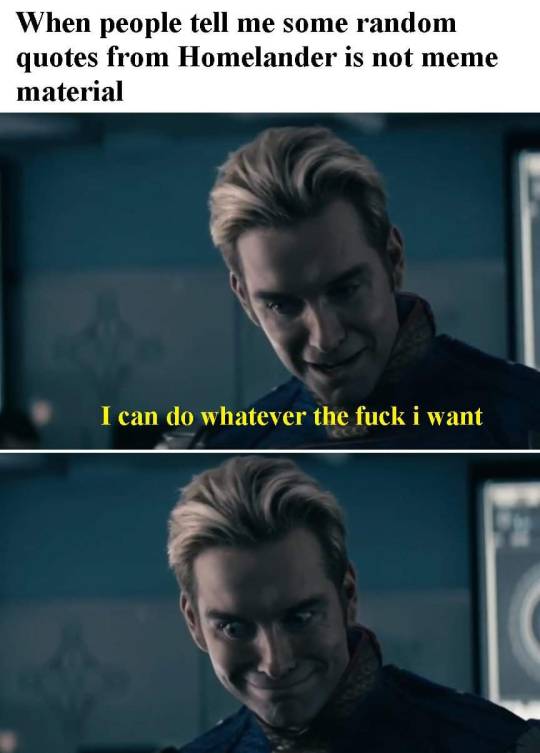
I thoroughly enjoyed this season of The Boys. So much so that I’m aching with anticipation to re-read the comic series in preparation for Season Two. It’s unlikely that it’ll follow the plot much, if at all after the ending, but with Stormfront (as a woman) being announced as the new Hero joining the Seven in the next season, I’m excited as to who else they might pull. This first season absolutely earns a high recommendation from me.
#comics#dynamite comics#the boys#billy butcher#karl urban#hughie campbell#jack quaid#tomer capon#the frenchman#karen fukuhara#the female#laz alonso#mother's milk#anthony starr#homelander#queen maeve#dominique mcelligott#a train#jessie t usher#starlight#erin moriarty#eric kripke#seth rogen#evan goldberg#amazon prime
1K notes
·
View notes